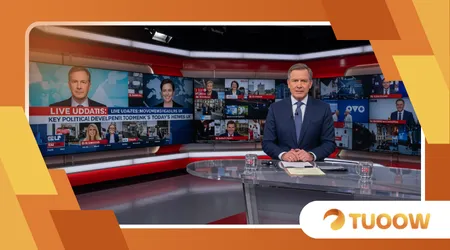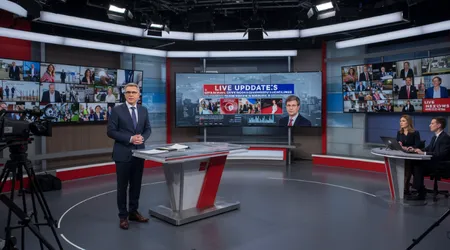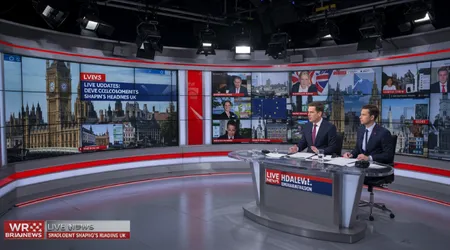Live Updates: Key Political Developments Shaping Today’s Headlines

In 2025, political developments across the UK and beyond dominate headlines, reflecting a volatile global landscape.
From Westminster’s reshuffling coalitions to international summits redefining alliances, the pace of change is relentless.
This article dives into the most pressing political developments, offering real-time insights into their implications.
With a focus on authenticity and clarity, we unpack the forces shaping governance, public sentiment, and global relations.
Why do these shifts matter?
Because they redefine power, policy, and the public’s trust in institutions. Let’s explore the unfolding narrative with a critical lens, grounded in facts and forward-thinking analysis.
The UK’s political scene is a crucible of ambition and ideology, with recent political developments exposing fault lines in governance.
A YouGov poll from April 2025 reveals 62% of Britons distrust government transparency, fueling debates over accountability.
This article synthesizes live updates, weaving together domestic reforms, international diplomacy, and grassroots movements.
Expect sharp commentary, practical examples, and a clear-eyed view of what’s at stake.
Whether it’s Labour’s policy pivots or global trade tensions, we’re here to make sense of the chaos with precision and wit.
Westminster’s Shifting Sands: Coalition Talks and Policy Pivots
Labour’s grip on power faces scrutiny as coalition talks intensify. Smaller parties, like the Greens, demand climate-focused concessions, reshaping political developments in Westminster.
For instance, a proposed carbon tax sparks heated debates, with businesses lobbying fiercely. This mirrors a chess game where every move recalibrates the board.
TheKeir Starmer to announce measures to ‘tighten up’ UK immigration system watch live Liberal Democrats, eyeing leverage, push for electoral reform, citing the 2011 referendum’s unresolved tensions.
The Prime Minister’s recent speech at Downing Street, emphasizing “unity over division,” feels aspirational but fragile.
Backbenchers grumble about diluted manifesto promises, particularly on NHS funding.
A leaked memo, reported by The Guardian in May 2025, suggests Labour may scale back hospital upgrades, prioritizing fiscal restraint.
++ UK Parliament Probes Skilled Worker Visa Policy and Sector Impacts
This pivot risks alienating voters, especially in marginal constituencies where trust is thin.
Public reaction on platforms like X shows frustration, with hashtags like #NHSBetrayed trending. Grassroots campaigns, such as Save Our Surgeries, gain traction, organizing protests in London.
These political developments highlight a disconnect between policy and public expectation, forcing MPs to recalibrate their rhetoric.
Will Labour bridge this gap, or will dissent fracture their majority?

Global Stage: UK’s Role in Trade and Diplomacy
On the international front, political developments in trade negotiations redefine the UK’s global standing.
Post-Brexit, the government seeks a landmark deal with the Indo-Pacific bloc. Talks in Singapore, ongoing as of May 2025, aim to secure tariff-free tech exports, a boon for Cambridge startups.
Yet, India’s demand for relaxed visa rules complicates matters, stirring domestic backlash.
Read more: UK Parliament Holds Final Vote on Major Data Regulation Reform Bill
Diplomacy isn’t just about handshakes it’s a high-stakes poker game. The UK’s absence from key EU climate summits, opting for bilateral talks with the US, raises eyebrows.
Critics argue this isolates Britain, while supporters claim it’s pragmatic. A Foreign Office report from March 2025 notes a 15% drop in EU-UK diplomatic engagements, signaling strained ties.
Public sentiment reflects this tension. A Birmingham factory worker, interviewed by BBC News, fears trade deals prioritize corporations over workers.
Such voices amplify calls for transparency, pushing MPs to justify their global gambits.
These political developments underscore the UK’s delicate balancing act between sovereignty and cooperation.
| Event | Date | Impact |
|---|---|---|
| Indo-Pacific Trade Talks | May 2025 | Potential £2bn tech export boost |
| EU Climate Summit Absence | April 2025 | 15% drop in EU-UK engagements |
| US Bilateral Talks | March 2025 | Strengthened transatlantic ties |
Grassroots Movements: The Pulse of Public Sentiment
Beyond Westminster, grassroots movements drive political developments with raw energy. The Cost of Living Alliance, a coalition of unions and activists, rallies against stagnant wages.
Their March 2025 protest in Manchester drew 10,000, per police estimates, demanding a £15 minimum wage. This isn’t just noise it’s a signal of eroding trust in elites.
Consider Jane, a fictional nurse from Leeds, who joins picket lines after her rent spikes 20%. Her story, echoed across X, fuels momentum for reform.
Unions leverage this, negotiating with Labour for wage hikes. But businesses warn of inflation, creating a tug-of-war that defines current political developments.
The rise of digital activism adds complexity. Platforms like Change.org host petitions, such as one for rent controls, nearing 500,000 signatures.
These efforts force MPs to confront voter priorities, reshaping policy debates. The question isn’t just what policies emerge, but whether they’ll restore faith in democracy.
The Media’s Role: Shaping Narratives and Accountability
Media outlets amplify political developments, but their role sparks debate. The BBC’s coverage of Labour’s budget cuts draws accusations of bias from both left and right.
A 2025 Ofcom report finds 48% of viewers question public broadcaster impartiality, eroding trust. This dynamic shapes how political developments are perceived.
Take the fictional case of Tom, a Liverpool teacher, who turns to X for unfiltered news. He shares a viral thread exposing council funding cuts, prompting local MPs to respond.
This shows media’s power to ignite debate, but also its vulnerability to polarization. Outlets like The Times push investigative pieces, holding ministers accountable.
Yet, clickbait thrives. Sensational headlines distort complex political developments, like the carbon tax debate, into culture wars.
Responsible journalism, blending rigor and accessibility, is vital. Without it, misinformation festers, undermining democratic discourse.
Can media rise above the fray to inform rather than inflame?
Looking Ahead: The Road to Stability or Stalemate
As political developments unfold, the UK faces a crossroads. Labour’s coalition gambits, if mishandled, could trigger snap elections, destabilizing markets.
The FTSE 100 dipped 3% in April 2025, per Bloomberg, amid coalition uncertainty. Stability hinges on compromise, but ideological rifts widen.
Globally, the UK must navigate trade and climate commitments without alienating voters. The Indo-Pacific deal could be a triumph, but only if public concerns, like job security, are addressed.
Grassroots pressure will keep MPs on edge, demanding policies that resonate with lived realities.
The media’s role remains pivotal. By prioritizing facts over sensationalism, it can foster informed debate.
These political developments aren’t just headlines they’re the threads weaving the UK’s future. Will leaders heed the public’s call, or will division prevail?
The answer lies in their next moves.

Conclusion: Navigating the Political Storm
The whirlwind of political developments in 2025 demands clarity and courage. From Westminster’s coalition chess to global trade tightropes, the stakes are high.
Grassroots voices, amplified by digital platforms, remind leaders that power serves the people. Media, too, must uphold truth over clicks, guiding discourse with integrity.
A single statistic 62% distrust in government transparency underscores the urgency of rebuilding faith. Like a ship in a storm, the UK must steer through these political developments with precision.
The path isn’t easy, but with informed citizens and accountable leaders, progress is possible. Stay engaged, question boldly, and shape the future.
Frequently Asked Questions
What drives the UK’s current political developments?
Coalition talks, trade negotiations, and grassroots activism shape political developments, reflecting public demand for transparency and economic fairness.
How can citizens influence political developments?
Engage via petitions, protests, or platforms like X. For example, the Cost of Living Alliance’s Manchester rally swayed wage debates.
Why do media narratives matter in political developments?
Media shapes perceptions. Ofcom’s 2025 report shows 48% doubt BBC impartiality, highlighting the need for balanced reporting to inform voters.
What’s the biggest challenge in these political developments?
Restoring trust. With 62% of Britons skeptical of government, per YouGov 2025, leaders must prioritize accountability to avoid stalemate.
